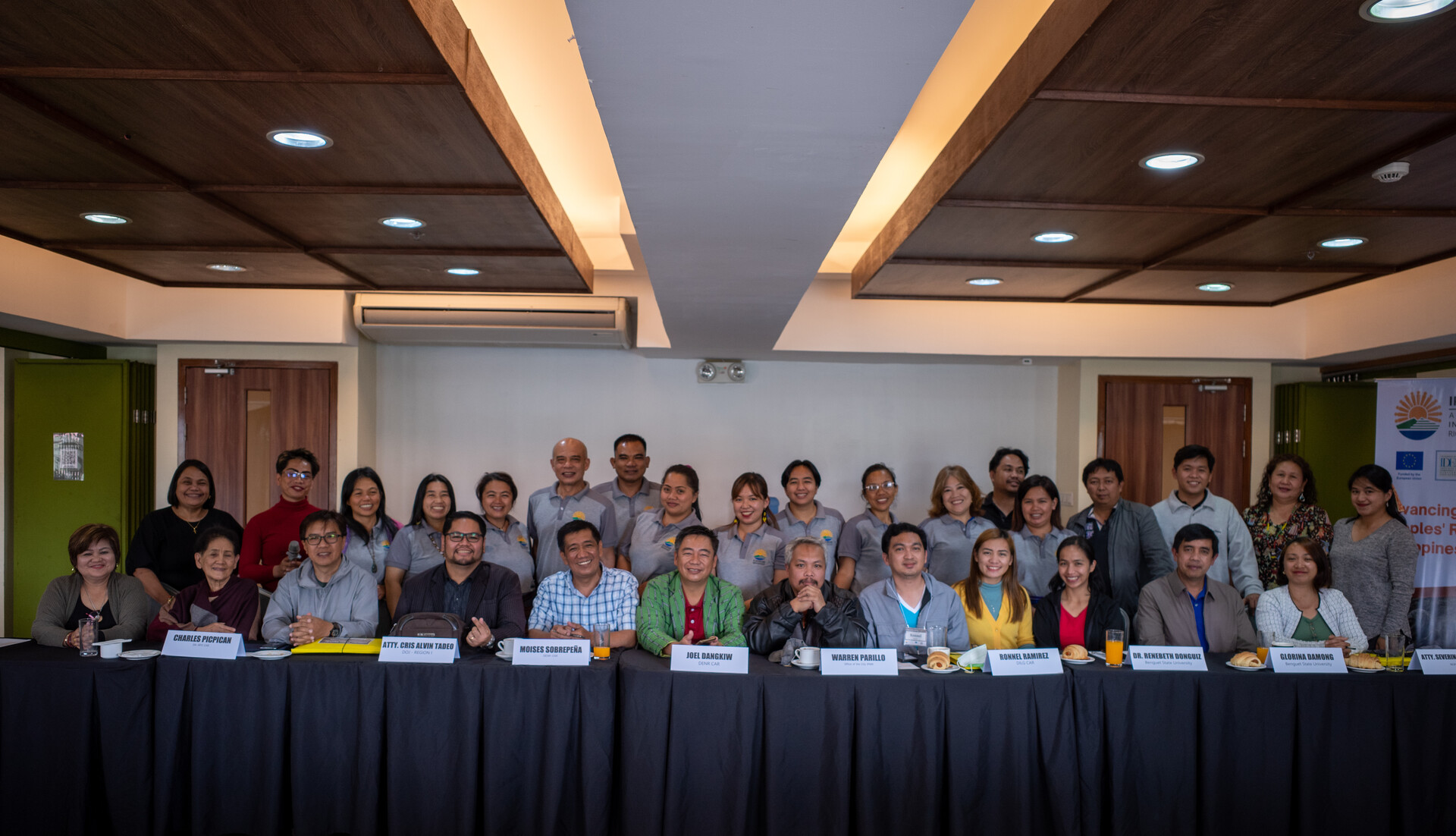Cordillera IP Champions hold talks with regional agencies to gain support for their advocacy plans
- Details

Twelve Indigenous Peoples (IP) Champions, who underwent training and mentorship under the "Advancing Indigenous Peoples' Rights in the Philippines" project by the International Institute for Democracy and Electoral Assistance (IDEA) and the Institute for Autonomy and Governance (IAG), converged today in Baguio City to seek government support for their advocacy plans and proposed initiatives.
The IP Champions emphasized various advocacy areas during the dialogue, including the protection of ancestral domains and land delineation, responsible and small-scale mining practices, waste management, and support for the bill on the rights of nature. They also discussed the prevention of gender-based violence, empowerment of IP youth, promotion of food sufficiency and fair trade, establishment of community-based peace and cultural hubs such as libraries and museums, development and implementation of appropriate technologies in IP communities, transmission of indigenous knowledge and tradition to the younger generation, protection and conservation of cultural heritage, and promotion of IP village tourism.
The IP Champions shared their insights, experiences, and recommendations with government officials in order to foster a better understanding of the unique needs and concerns of indigenous peoples in the region.
Representatives from various regional agencies participated in the dialogue, including the National Commission on Indigenous Peoples (NCIP), Department of Interior and Local Government (DILG), Department of Environment and Natural Resources (DENR), National Economic and Development Authority (NEDA), Department of Agriculture (DA), and Philippine Information Agency (PIA). The offices of the Baguio City Indigenous People’s Mandatory Representative (IPMR) and the City Prosecutor, Department of Justice (DOJ) Region 1, the Philippine Chapter of Igorot Global Organization, and Benguet State University were also present.
The government officials expressed their appreciation for the IP Champions' valuable insights and crosscutting initiatives presented during the dialogue, which are aimed at promoting and protecting the rights of indigenous peoples in the Cordillera region. The officials recognized the potential of these initiatives to enhance the delivery of government programs and services to indigenous communities.
According to Sheila Algabre, the Director for Programs at the IAG, the dialogue provided an opportunity for the IP champions and regional agencies to identify common concerns and areas of overlap. “While there may be different goals and priorities, there is potential for collaboration to build trust and make a greater impact in the communities,” she said.
The dialogue between the IP Champions and government officials is a key aspect of the International IDEA and IAG project, which is supported by the European Union. This approach promotes effective communication, collaboration, transparency, accountability, participatory decision-making, and inter-agency coordination, ultimately leading to the development of more comprehensive, sustainable, and responsive policies and programs that are tailored to the needs of indigenous communities.
About International IDEA
The International IDEA is an intergovernmental organization with the mission to advance democracy worldwide, as a universal human aspiration and enabler of sustainable development. The Institute does this by supporting the building, strengthening and safeguarding of democratic political institutions and processes at all levels. Its vision is a world in which democratic processes, actors and institutions are inclusive, accountable and can deliver sustainable development to all.
About IAG
The IAG is an independent policy center devoted to research, training and technical assistance to evolve genuine autonomy and good governance and support peace and development in the southern Philippines. IAG sees the promotion of autonomy as strategic, and it provides platforms for the country’s minority Muslims and indigenous peoples in the Bangsamoro and Cordillera regions to create self-governance structures for meaningful self-determination, sustainable growth and lasting peace.

